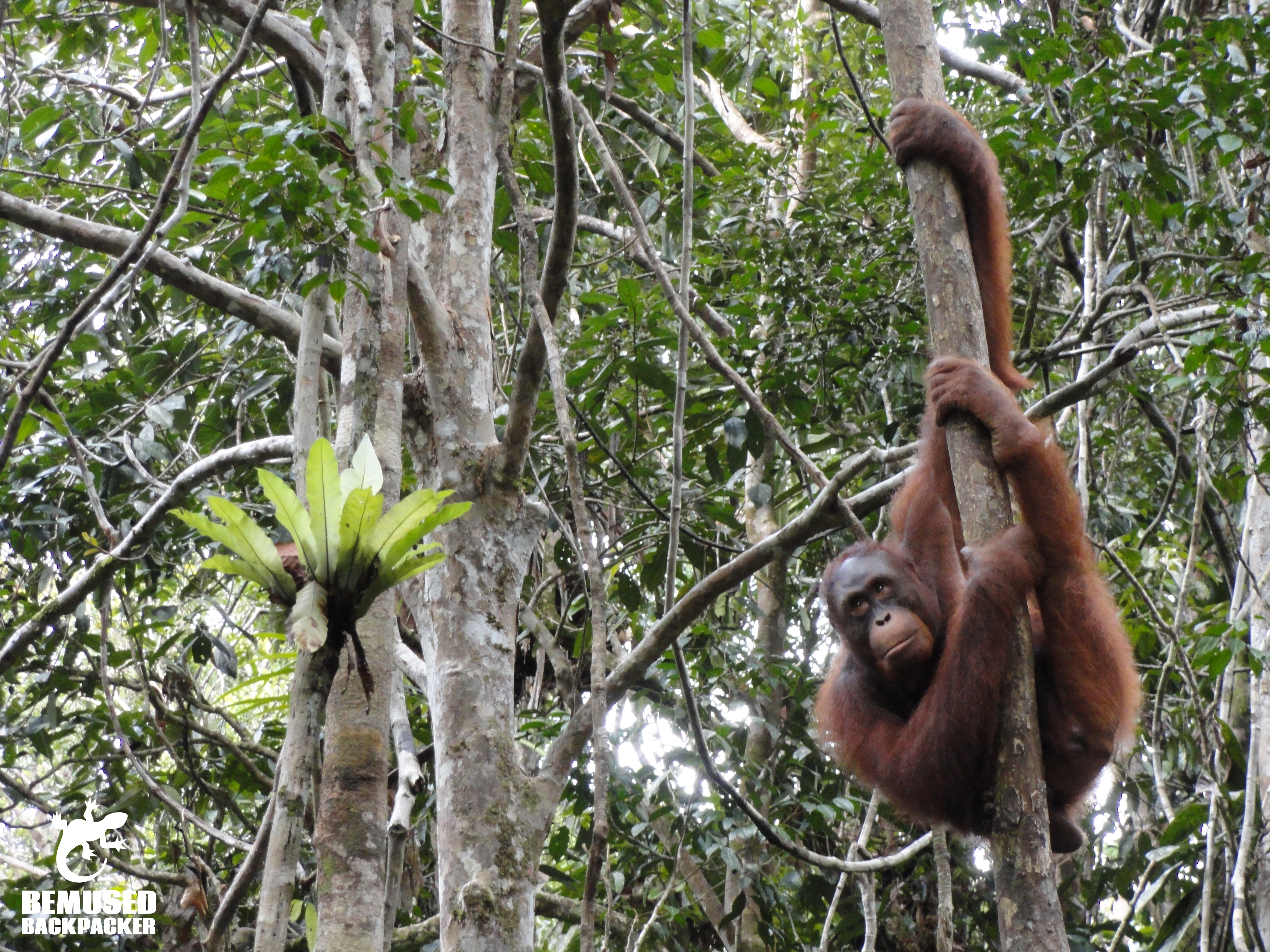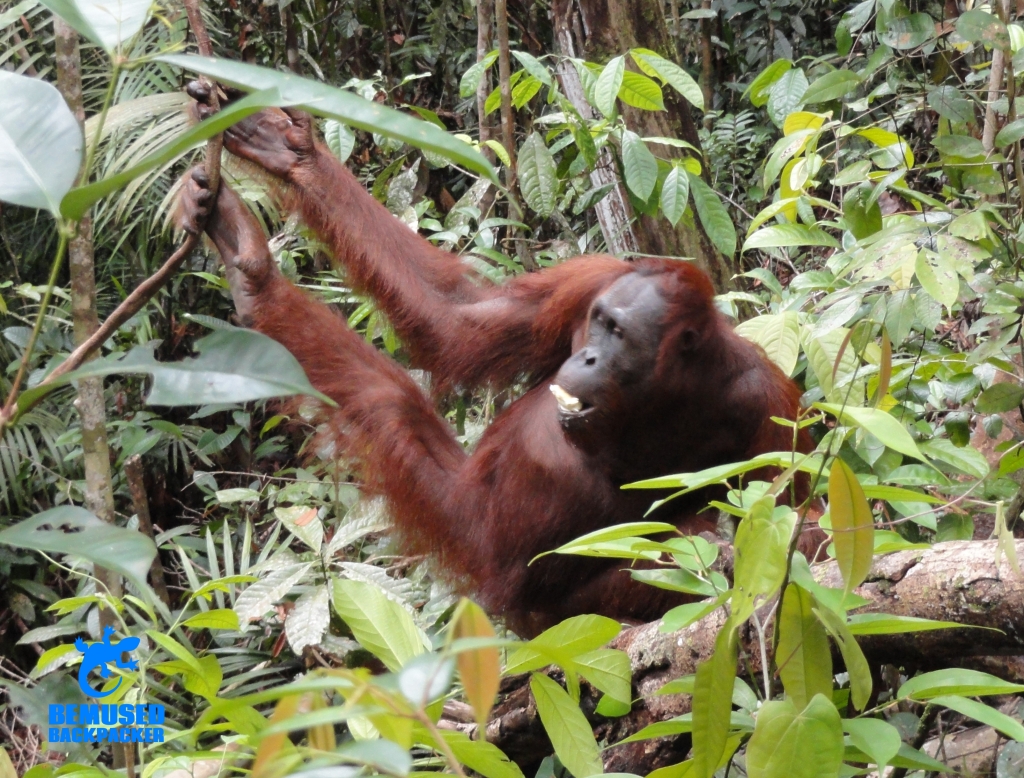
Wildlife conservation volunteering is the perfect opportunity to protect endangered species and make sure your gap year has a positive impact, but it is essential that it is done responsibly and ethically because it is all too easy to get it wrong and support an abusive, exploitative industry that only cares about making profit. Here is how you can make sure you do the right research, ask the right questions and volunteer for wildlife conservation projects in the right way.
Many backpackers – even before they are bombarded with countless volunteer packages from the gap year industry – are often sold on aspirations of helping the conservation efforts of endangered species or getting up close and personal with some of the most magnificent animals on the planet in far flung, exotic locations, experiences that they are not likely to get elsewhere.
To fulfil these dreams, the voluntourism sector has expanded massively into the wildlife and conservation arena with opportunities to work in a wide variety of rescue or rehabilitation centres, conservation camps, animal sanctuaries and so many other variations on the same theme. Animal and conservation volunteering has become a huge part of the gap year voluntourism industry worth £2.2 billion in the UK every year and over £5 billion globally.
Volunteering to help conserve and protect animals is a noble ideal, and one that can do a lot of good throughout the world. The problem is it can do a lot of harm too.
Unfortunately there are huge numbers of voluntourism companies who use the massive demand for animal volunteer opportunities and take advantage of it, using it for the sole purpose of making money, often with large amounts of greenwashing involved too.
Ignorance in many cases in the industry is no defence. They often do not care that they are exploiting the people who volunteer as much as they are exploiting the animals themselves, and they certainly don’t care that the opportunities they provide are actually harming a lot of animals.
This is unfortunate, as many potential backpackers and world travellers don’t set out to hurt or harm the animals or conservation efforts, their intentions are often good, they just get exploited by unscrupulous profit making businesses. Ignorance of the issues on an individual level is a little more understandable., but there does come a point where you have to take responsibility for your own choices and make an active and informed decision to volunteer and help in the right, ethical way.
So how do you make sure you make the right choices when you volunteer with animals?

Do Your Research.
This really should go without saying, but it is essential that you thoroughly research the wildlife project or organisation you will be volunteering with and don’t just go with the gap year voluntourist business your travel agent is partnered with. Look on animal and wildlife charity websites. Many conservation and wildlife charities will already be working with genuine projects around the world who are often in need of help and are an excellent resource.
Distinguish Between A Commercial Company And A Genuine Organisation.
Often commercial companies and agencies should be avoided at all costs in my opinion. Most are middle men purely there to make a profit, and questions should be asked as to where those thousands of pounds in fees are going. In the case of most large international corporations I can guarantee that the majority won’t be going into the projects these companies say they serve. They are there to make money, plain and simple.
Furthermore there is always a question of the volunteering opportunity being there to actually service the cause and help the animals or their habitat, or is it simply set up to serve tourists interests and act as a production line for voluntourists to go through with little or no benefit to the animals or their environment. Unfortunately with commercial companies it is quite often the latter.
That isn’t to tar every company with the same brush however, there are some good ones out there, but you need to look behind the glossy brochures of tourists cuddling baby tigers and the promises of getting up close and personal with wildlife and look very carefully at the motivation of these companies. If the motivation is profit, stay away.
Some genuine volunteer opportunities do charge a fee, but this is not to be confused with the profit making commercial companies. In these cases your fee will cover the costs of hosting you – your room and board essentially – and anything left will then go directly to the project itself. If this is the case then you will generally be dealing with the organisation themselves, not a middleman.
Many of the genuine organisations – BAWA in Bali for example – will not have a glossy programme for volunteers but will accept help if you approach them. They will look carefully at your skills and ask you to volunteer where you will be needed the most. This may be in the admin or shop front side of things which I know isn’t what many of you thought of when you wanted to volunteer with animals, but unless you have specific animal care qualifications or experience, what did you really expect? Genuine organisations may also ask you to donate or support their cause – not always in money but in much needed items too – but if it is money they will be very clear as to exactly where that money is going and you will be able to see the direct benefit of any money given.
Basically this means do your research and always go as directly to the project as you can. If they are an organisation that charges a fee, then it is better all of that money goes toward the project and the animal welfare, rather than lining the pockets of a corporation.
Choose A Hands Off Programme.
Dreaming of having a cuddle with a baby tiger? Want a profile photo with an orang utan for your social media profile? Then you seriously need to question your motives for wanting to volunteer with animals.
Any serious conservation organisation or wildlife rescue and rehabilitation projects will put an emphasis on keeping people as far away from the animals as necessary, and will certainly not allow animal rides or have animals performing for the tourists pleasure. This is because minimising the contact animals have with humans will give them a much better chance of being rehabilitated back into the wild and surviving. Avoid any so called rescue or rehabilitation centre that allows you to ride, cuddle or otherwise interact too closely with the animals.
There are organisations where you can interact with the animals in some small capacity, but make sure that it is an organisation that carefully controls this interaction.
The Animals Needs Come First, Not Yours.
It certainly isn’t as sexy to consider that volunteering may not involve any animal interaction and the idea will test your motivation for wanting to volunteer in the first place, but by volunteering in the right way – with the animals needs in mind – you will be doing a lot more good.
Remember, you are supposed to be there for the animals benefit, not to exploit them for your own gains.
Ask If You Have The Right Skills To Help.
Are you a vet? A veterinary nurse? Maybe a former zookeeper with a decade of experience working with exotic breeds of animal? No? Then what use are you?
Unfortunately many people think that they can walk into any wildlife sanctuary, conservation project or volunteering opportunity without any relevant skills or qualifications and still get up close and personal with the glamorous animals they have seen on all the glossy brochures.
It isn’t like that at all, at least not in any genuine animal welfare or conservation project.
Unless you have specific relevant skills such as veterinary medicine, animal handling or experience of working in an environment such as a zoo for example, then it is highly unlikely your skill set will be seen as worthy enough to allow you near the animals. Those with the necessary skills and professional qualifications will be actively welcomed by the projects involved and will generally receive reduced or even no fees as an incentive, especially for a long term commitment of at least a few months.
Many projects will accept anyone even if they don’t have these qualifications however, just be realistic in your expectations of what you will be allowed to do.
I mean seriously, do you really think you should be allowed to care for injured animals unless you are a vet or a veterinary nurse for example? Or at least have the relevant qualifications and experience to do so?
Don’t think of what you expect to do, think of how your specific skill set could help instead.
Many projects may need help with a website or promotion campaign, they may need help with manual labour cleaning out pens or repairing fences, or perhaps even education projects for local communities for anyone with educational experience. There is a wide range of opportunities available and a wide range of tasks that can be filled by people who don’t have animal care qualifications.
It certainly isn’t as glamorous as getting up close and personal with the animals, it won’t get you that fancy new Facebook profile picture. but it will help them just as much, and that is what any volunteer with the right motivation cares about.
Ask How Long You Can Devote To Helping.
Putting it plainly voluntourists who turn up just wanting to work for a day or two and get a few pictures before they carry on with their travels aren’t any help to anyone. If you can devote a larger chunk of time – think weeks and months, not days – then you are more likely to get a much more valuable and worthwhile experience, you are much likely to do some actual good, and the full time workers at the project are much more likely to give you more responsibility within the full range of volunteer opportunities.

Wanting to volunteer to help wildlife on your gap year or backpacking trip is a noble ideal and done right it is one that can do a lot of good, but like any volunteer opportunity it has to be done the right way. The voluntourism sector that exploits animals is booming because many tourists and first time backpackers support them – intentionally or otherwise. You do have a choice though, avoid the bad practices and support the right organisations instead. Doing your research and making informed decisions is the first step.
Did you enjoy this article? I would love to hear your thoughts in the comments section below or on my Facebook or Twitter pages and please feel free to share it with any or all of the social media buttons. If you want to get more great backpacking tips, advice and inspiration, please subscribe to updates via email in the box to your right.
Related Articles.
A photo for Facebook? You’ve just ‘liked’ animal abuse.
Responsible Orang Utan Spotting In Semenggoh Wildlife Centre.
Responsible Wild Bear Watching In Slovakia.





Great article Mike! This week I’m going to a Monkey Sanctuary in order to do a story but I wouldn’t really consider it as volunteering. Good perspective! 😀
Thanks Raphael. You don’t have to be volunteering to make sure you are making the right choices on wildlife tourism. 🙂 Thanks for commenting.
Very good post! A lot of good information here for people interested in volunteering with animals but aren’t sure how to approach it. I think a big misconception with travelers is that all volunteering = good, but unfortunately it just isn’t like that. You have to be really careful choosing the right opportunity.
Thank you Jules and Christine. I totally agree. A lot of volunteering can cause a lot of harm too and that is why I think it is important to try and get people asking the right questions and having the right information from the start.
Great article on volunteering. I would love to volunteer in the future and will definitely keep this post and advice in mind when determining what path to go down.
Thanks Angela I’m happy you found it useful. 🙂 Volunteering can be a good thing if it is done right from the start.
Wonderful service you are doing for animals, as usual, Michael. Great tips for two legged animals too ;P
Thanks, I wish I could do more for them to be honest, but at the moment getting the message out there as much as I can is all I can do. Thanks for the comment. 🙂
Excellent info. Volunteering is a great way to give back to the countries you visit, learn a new skill (or enhance an existing one) and make new friends (both locals and other travellers).
Thank you, you’re right volunteering can be a great thing when it is done right.
This really made me think, such a great post.
Thank you Lucy.